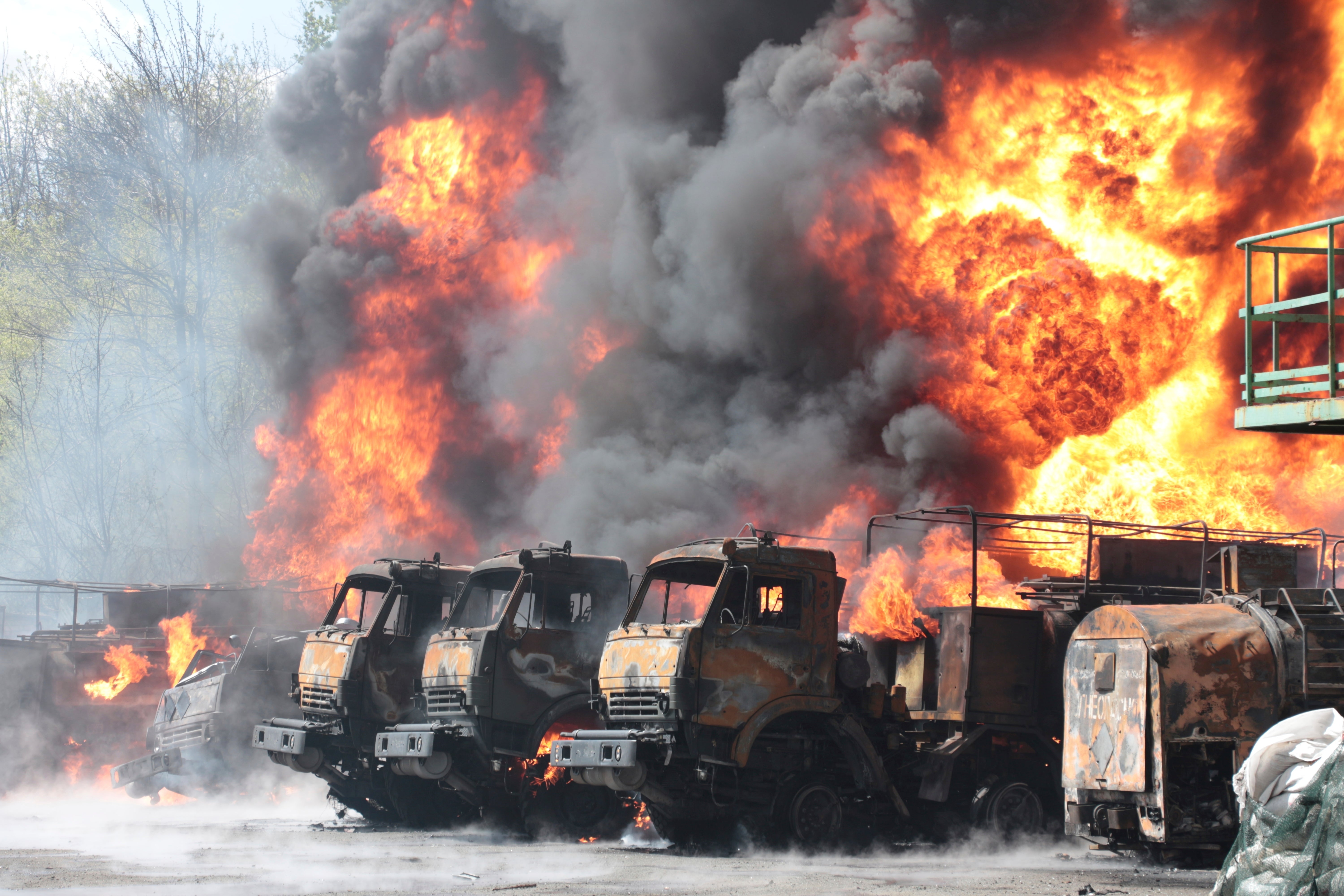
Oil prices surged on Wednesday after the European Union announced plans to ban all oil imports from Russia, saying president Vladimir Putin “must pay a high price” for his “brutal aggression” against Ukraine.
European Commission President Ursula von der Leyen unveiled proposals for a phased oil embargo as well as sanctions against Moscow’s top bank in a bid to deepen Russia’s isolation.
If it goes ahead, the plan would mark a major escalation in European efforts to cut funding to Putin’s war machine.
It also threatens to push up fuel prices for motorists and businesses across Europe, who are already facing record costs to fill up their tanks.
Brent crude, the key international oil price benchmark, jumped by $4, or 3.8 per cent, to $108.97 a barrel.
Europe imports some 3.5 million barrels of Russian oil and oil products daily, and also depends on Moscow's gas supplies.
The EU intends to stop buying supplies of Russian crude oil within six months and refined products by the end of the year. It has already decided to implement a full ban on Russian coal, but has not yet taken steps against Russian natural gas supplies.
“We will propose to ban all Russian oil from Europe,” Ms von der Leyen told the European Parliament in Strasbourg. “This will be a complete import ban on all Russia,” she said to applause in the chamber.
The plan, if agreed by EU governments, would mark a watershed for the world’s largest trading bloc, which is dependent on Russian energy and must find alternative supplies.
However, Ms von der Leyen has conceded that it will be difficult for the plan to gain unanimous support. This is because some nations, including Hungary and Slovakia, have indicated they will not agree to such a move. It is unclear whether these countries will be given an exemption by the EU.
“We are addressing our dependency on Russian oil. And let’s be clear, it will not be easy because some member states are strongly dependent on Russian oil, but we simply have to do it,” she said.
The difficulty of reaching a consensus was made clear by the Czech trade minister, Jozef Sikela, who complained on Wednesday that the policy lacked a plan for burden-sharing.

“The proposal does not include... how the gap will be distributed, meaning how to share it fairly, and a proposal on joint purchases and joint distribution,” he told Reuters. “We are still studying it, but it is a problem for me.”
The bloc also plans to remove Sberbank from the Swift financial transfer system and hopes to target three Russian-state broadcasters, which Ms Von der Leyen called “mouthpieces that amplify Putin’s lies and propaganda aggressively”.
The European Commission president also said the EU should sanction Russian soldiers “who committed war crimes in Bucha”, the Kyiv suburb where hundreds of bodies were discovered after the withdrawal of the Kremlin’s forces from the area.
“This sends another important signal to all perpetrators of the Kremlin’s war: we know who you are. We will hold you accountable. You’re not getting away with this,” Ms von der Leyen said.
Oleg Ustenko, Ukraine president Volodymyr Zelensky’s chief economic advisor, said the EU should go further.
“Ukrainians have watched in disbelief as our partners in the European Union continued to purchase Russian fossil fuels, funding war crimes in our country to the tune of €1 billion every day,” he said.
“We now finally see action. Yet still, companies are trading Russian fossil fuels, shipping and piping huge quantities of Russian oil, gas and coal around the world. We have a simple message for these companies – we are watching you. Ukraine will not forget who those who supported us, nor will we forget those who chose Putin’s side.”
Meanwhile, Mike Davis, the chief executive of the NGO Global Witness, said the EU’s measures “totally fail to match either the immediacy or scale of the problem”. He added that the ban must happen sooner, and should also target Russian gas.
Even before the latest news, inflation in Britain was expected to surge to a 40-year high in 2022. Consumer Prices Index inflation is expected to hit 8 per cent, causing the steepest decline in living standards since the 1950s as wage increases fail to keep pace.
On Thursday, the Bank of England is set to deliver its latest inflation report and decision on interest rates. It is widely expected to raise rates from 0.7 per cent to 1 per cent in a bid to tame inflation.







